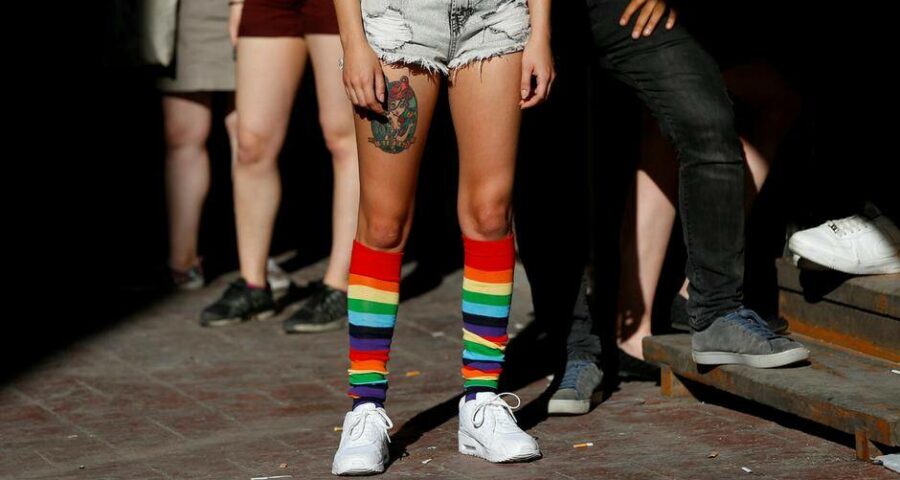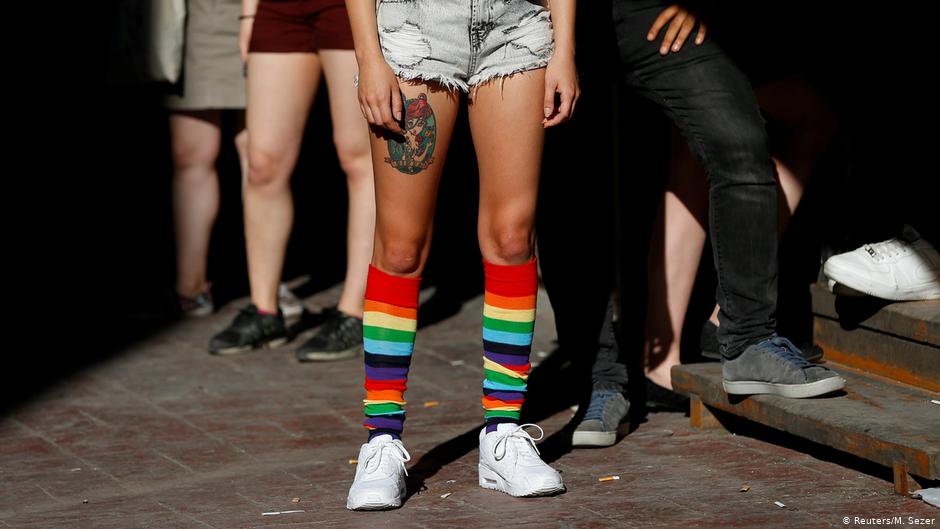Transgender people in Turkey frequently face violent attacks that go unpunished. LGBT+ activists are demanding more justice and safety, amid a political system that fosters a hostile environment.
When Miras Günes body was found a few days ago, her face was disfigured beyond recognition. The preliminary autopsy report revealed she was beaten to death with a hard object. Investigators are trying to find who was behind the attack on Günes, a trans woman from Izmir who had been reported missing in February.
Just days before Günes’ body was found, 18-year-old Emre B. allegedly attacked a trans woman with acid on March 9 in Istanbul’s Beyoglu district. She suffered burns all over her body and lost much of her eyesight. A week before that attack, also in Istanbul, Harun S. was charged with sexual assault after allegedly following a transgender woman, Asel, to her front door, where he sexually assaulted her at gunpoint. “I thought it was a woman. But it turned out to be a man,” he reportedly said while detained — before being released.
Slayings of LGBT+ people: Underestimated problem
These three recent violent attacks have been all over the Turkish press — and have received a lot of attention from the Turkish public. According to a study by Pink Life, a Turkish transgender association, attacks against trans people are not rare. The study lists 54 transgender people killed in Turkey since 2008, but Pink Life estimates that with the number of unreported cases the total is significantly higher.
“Suspicious deaths and suicide attempts, as well as unregistered deaths, are not included in the statistics,” says Yildiz Tar of the LGBT+ organization Kaos GL.
Attacks on transgender people should not be seen as isolated incidents, but as a social problem, he told DW. “Hate crimes result from a very long history of discrimination. Such attacks are made possible in the first place by a system of inequality.”
Condemned to a kind of social death
Police officers had refused to take on the case of Asya, a trans woman who went to the police after being threatened and beaten. Three days later, she was attacked with acid, according to Pink Life activist Efruz Kaya. “The male-dominated justice system does not care about us. There is no trust in the judicial authorities,” the activist told DW.
Transgender people face a wide variety of discrimination in everyday life in Turkey, she said, adding they are often denied the most basic rights, including work, housing, health, education — and it is considered legitimate. “They already doomed to social death,” she argued.
‘Policy of impunity’
According to Article 10 of the Turkish constitution, police officers are obliged to treat all people equally, Levent Piskin told DW. Instead, they do not protect LGBT+ people, but promote homophobia and transphobia, the lawyer said. Getting access to the justice system is difficult where hate crimes against transgender people are concerned, the lawyer added. “Far from being objective, vague concepts like morality and honor are used to justify a policy of impunity.”
The Turkish government has been using increasingly harsh rhetoric towards the LGBT+ community. Since the beginning of January, there have been regular raids or arbitrary arrests of students in Istanbul protesting the appointment of pro-government Professor Melih Bulu as president of the city’s prestigious Bogazici University.
LGBT+ targeted
In particular, the Istanbul police and judiciary targeted LGBT+ people, activists say. The students had organized an art exhibition on campus, where one picture showed the Kaaba — a holy shrine of Islam — side by side with a rainbow flag, the symbol of the LGBT+ scene. The Istanbul prosecutor’s office launched an investigation, and four students were arrested, two of whom were subsequently detained, while government politicians made transphobic remarks, including President Recep Tayyip Erdogan, who has flatly denied the existence of transgender people.
“We will carry our young people to the future, not as the LGBT youth, but as the youth that existed in our nation’s glorious past,” Erdogan said. His communications chief Fahrettin Altun also made disparaging remarks, saying “concepts like freedom and tolerance should never be exploited for homosexuality propaganda.” Interior Minister Suleyman Soylu wrote on Twitter about the arrests of “four LGBT deviants.”
Even before the student protests, LGBT groups criticized the government’s homophobic and transphobic attitude. The ban of the 2015 Gay Pride march in Istanbul was a turning point for the community. The annual parade has not been held since.
Above all, lawyer Levent Piskin said politicians are responsible for the homophobic and transphobic climate in Turkey. Public institutions, lawmakers and politicians have initiated a discourse that is clearly directed against LGBT+ people, he said, adding that “the state has moved from a policy of denial to a policy of hate.”
‘We get a lot of support’
Transgender people are being used as scapegoats in hard times, warned Pink Life activist Kaya. The government is not doing a good job on the political or economic front, she added. “In such crisis situations, right-wing governments in particular immediately identify an enemy, demonize them and incite their voters against them.”
Despite the tense political climate, however, she remains optimistic. “We’re getting better organized, we’re getting a lot of support — today we don’t feel as alone as we once used to.”
Source: Read Full Article


